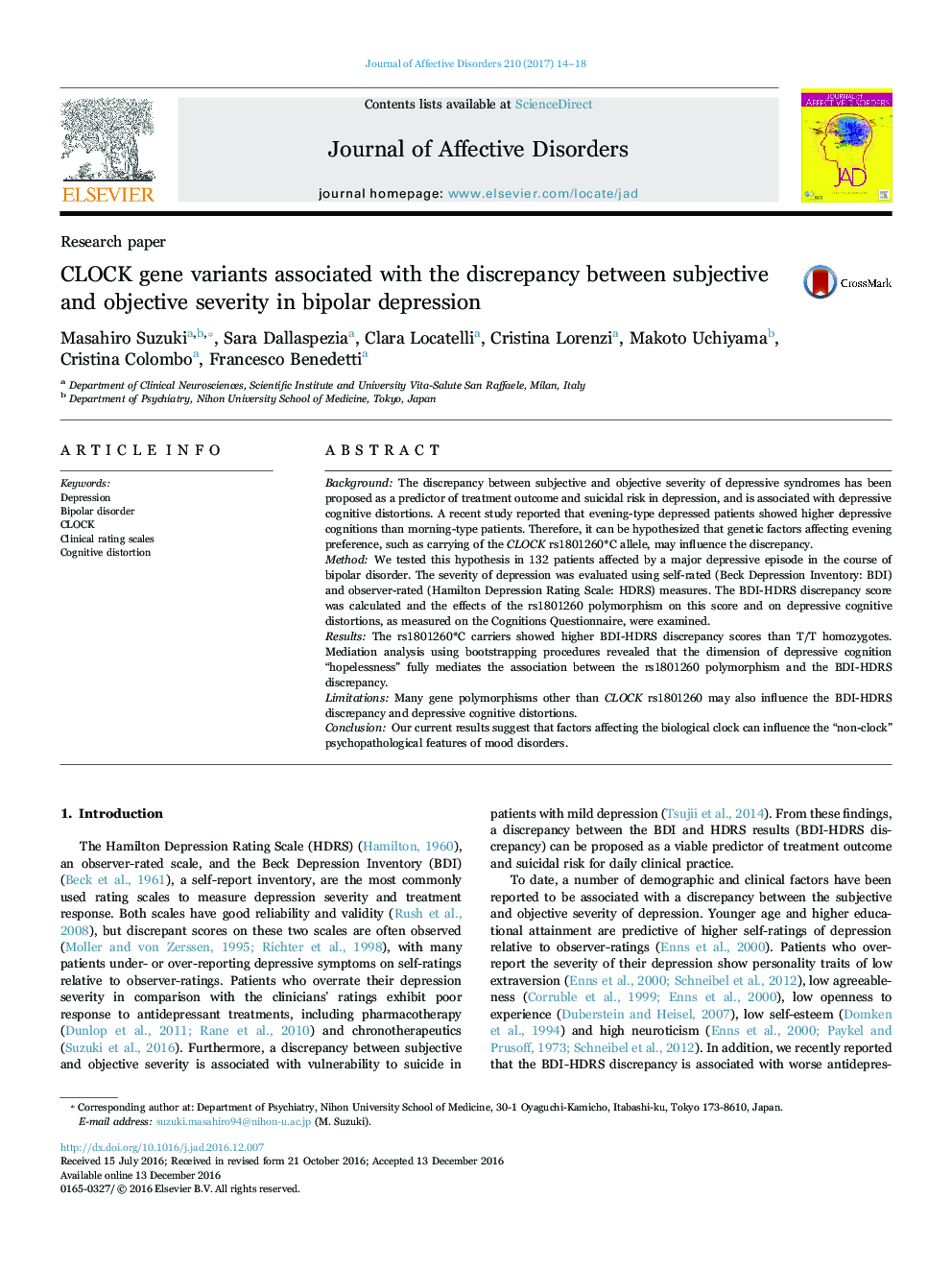| Article ID | Journal | Published Year | Pages | File Type |
|---|---|---|---|---|
| 5722366 | Journal of Affective Disorders | 2017 | 5 Pages |
â¢A discrepancy is seen between the subjective and objective severity of depression.â¢CLOCK rs1801260*C carriers showed a larger discrepancy than T/T homozygotes.â¢Hopelessness mediated the association between rs1801260 and the discrepancy.
BackgroundThe discrepancy between subjective and objective severity of depressive syndromes has been proposed as a predictor of treatment outcome and suicidal risk in depression, and is associated with depressive cognitive distortions. A recent study reported that evening-type depressed patients showed higher depressive cognitions than morning-type patients. Therefore, it can be hypothesized that genetic factors affecting evening preference, such as carrying of the CLOCK rs1801260*C allele, may influence the discrepancy.MethodWe tested this hypothesis in 132 patients affected by a major depressive episode in the course of bipolar disorder. The severity of depression was evaluated using self-rated (Beck Depression Inventory: BDI) and observer-rated (Hamilton Depression Rating Scale: HDRS) measures. The BDI-HDRS discrepancy score was calculated and the effects of the rs1801260 polymorphism on this score and on depressive cognitive distortions, as measured on the Cognitions Questionnaire, were examined.ResultsThe rs1801260*C carriers showed higher BDI-HDRS discrepancy scores than T/T homozygotes. Mediation analysis using bootstrapping procedures revealed that the dimension of depressive cognition “hopelessness” fully mediates the association between the rs1801260 polymorphism and the BDI-HDRS discrepancy.LimitationsMany gene polymorphisms other than CLOCK rs1801260 may also influence the BDI-HDRS discrepancy and depressive cognitive distortions.ConclusionOur current results suggest that factors affecting the biological clock can influence the “non-clock” psychopathological features of mood disorders.
